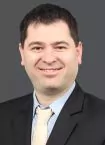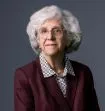On August 26, 2020, the U.S. Securities and Exchange Commission ("SEC") adopted amendments to the definition of "accredited investor" and related amendments to the definition of "qualified institutional buyer." The accredited investor definition is central to the regulation of exempt offerings. Consistent with the initial proposal, the amendments broaden the categories of individuals and entities that qualify as accredited investors and adopt a clear and workable definition of accredited investor that is not subjective and that can be easily understood and applied and monitored on an ongoing basis in order to promote certainty.
Offerings under Regulation D have proven to be important to issuers and investors, and account for significant amounts of capital raised. The adopting release reaffirms the existing aspects of the definition that an accredited investor includes a person who meets one of the listed qualification methods, or who an issuer reasonably believes meets one of the qualification methods, at the time of the sale of the securities to that person. Under this standard, if an issuer has an objectively reasonable belief that a person is an accredited investor at the time of investment, it has legal certainty, even if it turns out the person was not in fact an accredited investor.
New Categories of Natural Persons
The amendments supplement the existing definition by adding two new categories of accredited investors for natural persons, regardless of such person's income or net worth.
LICENSED PERSONS
The first added category allows a natural person to qualify as an accredited investor, regardless of net income or net worth, if the person holds certain professional certifications, designations or credentials that arise out of an examination administered by a self-regulatory organization or other industry body, which examination is intended to demonstrate comprehension and sophistication in the areas of securities and investing, and if information regarding holders of the certification, designation or credential is publicly available.
As proposed, the final amendment provides that the SEC may designate qualifying professional certifications, designations and other credentials by order, with such designation to be based upon consideration of all the facts pertaining to a particular certification, designation or credential. Also as proposed, the final amendment includes a nonexclusive list of attributes that the SEC will consider in determining which professional certifications and designations or other credentials qualify a natural person for accredited investor status. This will allow the SEC some flexibility to make additional designations over time. The SEC would provide notice and an opportunity to comment in connection with future proposed changes.
Initially, this category includes designations for licensed securities representatives (Series 7), licensed investment adviser representatives (Series 65) and licensed private securities offerings representatives (Series 82). A licensed person must be in "good standing."
KNOWLEDGEABLE EMPLOYEES
The second added category allows knowledgeable employees to qualify as accredited investors for purposes of investing in the funds sponsored by their employers.
A knowledgeable employee is defined under Rule 3c-5(a)(4) of the Investment Company Act of 1940 as any executive officer, director, trustee, general partner, advisory board member or person serving in a similar capacity, an affiliated management person or an employee, who, in connection with his or her regular functions or duties, participates in the investment activities of such covered company, other covered companies or investment companies, the investment activities of which are managed by such affiliated management person of the covered company, provided that such employee has been performing such functions and duties for at least 12 months.
SPOUSAL EQUIVALENTS
The final amendments clarify that, in calculating income and net worth, as well as in the context of knowledgeable employee joint investments, an investor can aggregate the investor's income or net worth, as the case may be, with that of his or her spouse or spousal equivalent.
Entities
The amendments also add several new categories of entities to the accredited investor definition, including:
- SEC- and state-registered investment advisers.
- Rural business investment companies.
- Limited liability companies (or any similar business entity) that satisfy the other requirements of the definition of "accredited investor" (i.e., total assets in excess of $5 million and not formed for the specific purpose of acquiring the securities being offered).
- Any entity that does not otherwise qualify as an accredited investor owning investments as defined in Rule 2a51-1(b) under the Investment Company Act in excess of $5 million that is not formed for the specific purpose of acquiring the securities being offered.
- Any family office1 with at least $5 million in assets under management and its family clients. 2
The final amendments did not limit these entity categories to any particular organizational form, as organizational form is irrelevant to the investor protection considerations that bear on how the category is defined.
Financial Thresholds and Advisors
The SEC did not modify the financial thresholds, nor did the SEC adopt geography-based specific financial thresholds.
The SEC also had requested comment in its proposing release regarding whether it should permit an investor advised by a registered investment adviser or broker-dealer to be deemed an accredited investor. At this time, the SEC decided against this change.
Amendments to Test the Waters Rule 163B
The SEC amended Rule 163B in order to maintain consistency with the categories of institutional accredited investors added by today's amendments.
Qualified Institutional Buyer Definition
The SEC also amended the definition of qualified institutional buyer in Rule 144A to avoid inconsistencies and include the entities that qualify as institutional accredited investors when these entities meet the $100 million in securities owned and invested threshold in Rule 144A.
Practical Considerations
The amendments will become effective 60 days after their publication in the Federal Register. Institutions that use accredited investor and/or QIB questionnaires for their exempt offerings should begin the process of updating these questionnaires prior to the effective date.
Likewise, for broker-dealers and advisers that keep client information on file, including information on a client's status as an accredited investor or QIB, this information may need to be refreshed. In addition, representations and warranties in form subscription or securities purchase agreements may require a close review for necessary updates.
Footnotes
1 "Family office" is defined as a company (including its directors, partners, members, managers, trustees and employees acting within the scope of their position or employment) that (i) has no clients other than family clients (as defined in footnote 2 below); (ii) is wholly-owned by family clients and is exclusively controlled (directly or indirectly) by one or more family members and/or family entities; and (iii) does not hold itself out to the public as an investment adviser.
2 "Family clients" include family members, former family members, key employees, non-profit and charitable organizations funded exclusively by family clients, estates of family members and certain former key employees, certain family client trusts and companies wholly owned by and operated for the sole benefit of family clients.
Visit us at mayerbrown.com
Mayer Brown is a global legal services provider comprising legal practices that are separate entities (the "Mayer Brown Practices"). The Mayer Brown Practices are: Mayer Brown LLP and Mayer Brown Europe – Brussels LLP, both limited liability partnerships established in Illinois USA; Mayer Brown International LLP, a limited liability partnership incorporated in England and Wales (authorized and regulated by the Solicitors Regulation Authority and registered in England and Wales number OC 303359); Mayer Brown, a SELAS established in France; Mayer Brown JSM, a Hong Kong partnership and its associated entities in Asia; and Tauil & Chequer Advogados, a Brazilian law partnership with which Mayer Brown is associated. "Mayer Brown" and the Mayer Brown logo are the trademarks of the Mayer Brown Practices in their respective jurisdictions.
© Copyright 2020. The Mayer Brown Practices. All rights reserved.
This Mayer Brown article provides information and comments on legal issues and developments of interest. The foregoing is not a comprehensive treatment of the subject matter covered and is not intended to provide legal advice. Readers should seek specific legal advice before taking any action with respect to the matters discussed herein.



